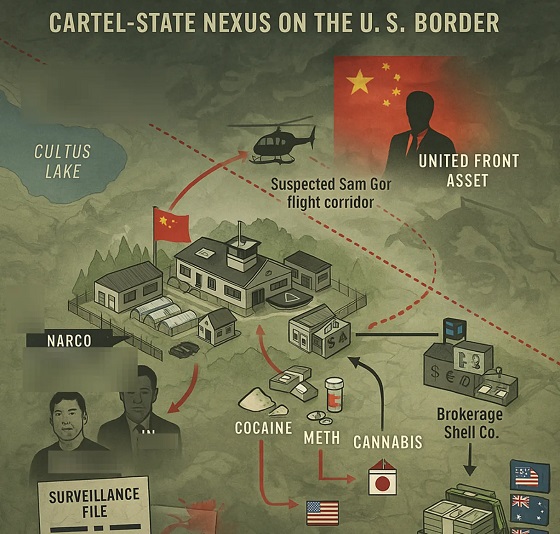Frontier Centre for Public Policy
Moscow attack highlights need for secure borders
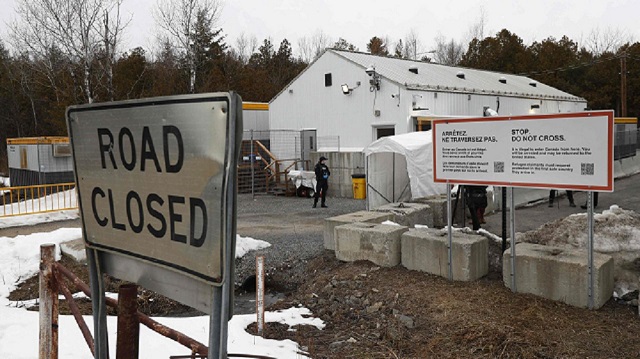
From the Frontier Centre for Public Policy
Are candid questions about border security and immigration really semi-racist, or are they legitimate self protection? Are questions about unchecked people entering our countries from parts of the world where Islamists have great influence “Islamophobia”, or are such questions perfectly understandable given the Islamist-inspired attacks that occur with regularity around the globe?
The shocking terrorist attack that took place on March 22, 2024 near Moscow is still reverberating around the globe. Exactly who was responsible for the attack and why it happened is not completely clear. One of the many Islamist terrorist factions, IS Khorason Province, has taken “credit” for the bloody massacre, but the details are murky. To add to the murk the videos that have emerged showing large powerful shooters that some say stand in stark contrast to the videos showing smaller and less robust Tajik suspects confessing to being the shooters. So, conspiracy theories are flying.
Meanwhile, Vladimir Putin seems intent on trying to blame Ukraine, but that is entirely predictable. Everything Putin says is now taken with a grain of salt by the international community. Ukraine does not appear to be connected. What is known is that Putin was warned recently by the U.S. that exactly such an attack was in the works, but angrily blew off the warning as American propaganda. How Russians will react to this information -or even if they will find out about it – is not known. We don’t know much more than that at this time. Hopefully the details will become clearer with the passage of time.
However, two facts about the incident that do appear to be reasonably certain are that the perpetrators were not Russians, and that the attack was related to an Islamist terror group that hates Russia – and apparently everyone else that does not share their philosophy.
That definitely includes Canada. Should we worry about such an attack taking place here?
At one time the answer would be “probably not”. Canada was a nation with a sophisticated, well-regulated immigration system that weeded out potential terrorists, and tightly controlled borders. A dangerous person might still get in, but chances are that even if he did his movements would be monitored, and he would be stopped before committing an atrocity. But not anymore.
This all changed when Justin Trudeau became prime minister in 2015. Canadians were mystified when he told the New York Times that Canada was a “post national state”. What did he mean?
What he meant began to become clear when he sent out his famous January, 2017 tweet basically inviting any global resident who cared to come to Canada – no questions asked.
“To those fleeing persecution, terror & war, Canadians will welcome you, regardless of your faith. Diversity is our strength #WelcomeToCanada,’
And thousands did. Roxham Road became internationally famous as a pleasant lane where any global resident with the wherewithal to fly to the United States could get a cab to Roxham Road, and simply walk into Canada. They would then agree to show up at an immigration hearing they had no intention of attending. And that would be it. They would stay as long as they liked.
Canadians began to understand the implications of being a “post-national state”. Because does such an entity as a “post-national state” even need borders, border guards, border security – or even an army, for that matter? Aren’t concerns about terrorists getting into your country rather silly now if Canada had apparently evolved past that outdated “nation state” stage? And why even be concerned with how many people were entering the country if borders weren’t really relevant any longer?
So people came. Anyone who raised questions about this radical new philosophy was branded as something akin to a racist or white supremacist. Or, worst of all – “like Donald Trump”, who had famously questioned the wisdom of allowing free entry into the U.S. of people from countries where Islamist philosophy prevails.
This worked. The Conservatives were thoroughly intimidated. So they basically remained silent, while millions of immigrants and foreign “students” flooded into the country, with little in the way of background checks.
In recent years the number of people coming into Canada as asylum seekers, foreign students, or immigrants in other categories has been astounding. Last year alone, Canada had an additional 550,000 immigrants, but more than 1,000,000 foreign students.
These are staggering numbers. Most of these people are probably peaceful and productive people. But how many of them are not? How many of the million “students”, for example, might have ties to the same Islamic terrorist group that terrorized Moscow?
The fact is that we don’t know. The numbers coming in are too great. They are coming in too fast. And they are not being properly checked. The frightening reality is that if even a tiny fraction of these virtually unchecked people are terrorists Canada could see tragedy unfold any day of the week.
Many of these foreign students appear to be involved in the lawless and shockingly antisemitic protests, now occurring daily in public places, and even in Jewish neighborhoods – sometimes directly in front of synagogues! In January, 2024 National Post commented on this frightening phenomenon:
“In recent months, we have witnessed a critical mass of antisemitic Canadians willing to vandalize Jewish businesses, protest relentlessly for a Palestinian nation-state “from the river to the sea” and even threaten police officers with death.”
The Post notes that most of the most violent protests appear to involve new immigrants and foreign students from Muslim nations. It would be a slur on these people to suggest that they are tied to an Islamist terrorist group, like the IS-K group claiming responsibility for the deadly rampage in Moscow. And yet, Canadians who are witnessing this alarming antisemitism have a right to know with whom they are sharing their country. That is the right of every citizen.
Our neighbours to the south are worried about terrorism as well. Millions of unchecked migrants have simply walked into Texas, Arizona and California since 2020. If even a tiny fraction of these unchecked migrants are terrorists there will be major trouble ahead. Recently, Christopher Wray, Director of the Federal Bureau of Investigation (FBI) has warned about the likelihood of a terror attack occurring because of these lax or completely absent border controls.
Britain, and all of Europe are also beginning to realize that the almost unrestricted, and unregulated immigration into their countries is placing them at great risk. Because of these understandable concerns the unwritten taboo about citizens asking candid questions about the backgrounds of newcomers to their countries is starting to break down. Simply put, people don’t want terrorists entering their countries.
That includes citizens of Russia. We don’t know how events will play out in Moscow. Is this just the first of many similar attacks in Moscow and elsewhere, or is it just a one-off?
But perhaps it will get us all thinking more clearly. Are candid questions about border security and immigration really semi-racist, or are they legitimate self protection? Are questions about unchecked people entering our countries from parts of the world where Islamists have great influence “Islamophobia”, or are such questions perfectly understandable given the Islamist-inspired attacks that occur with regularity around the globe? Should we continue to write off any political party that dares ask these questions as “far-right” or “anti-immigrant” or should we listen to the questions that they raise and take these concerns seriously?
Ordinary citizens throughout the western world are starting to wake up and realize that it is not racist, or “far right”, to demand to know who is being let into our countries. We all want peaceful, productive immigrants who share our basic values. But we have the right to know that is who they are before we let them in. Who we allow into our country is of vital importance to us, and we should not be afraid to say so. We have a right to expect that our borders are secure.
Perhaps at some stage in human evolution borders will no longer be necessary, because we will all be living in some peaceful, post-national state. But until that glorious day comes, we need secure borders, and we need to have good information about anyone who wants to cross them.
Brian Giesbrecht, retired judge, is a Senior Fellow at the Frontier Centre for Public Policy
Business
Canada’s Election Is Over And Now The Real Work Begins
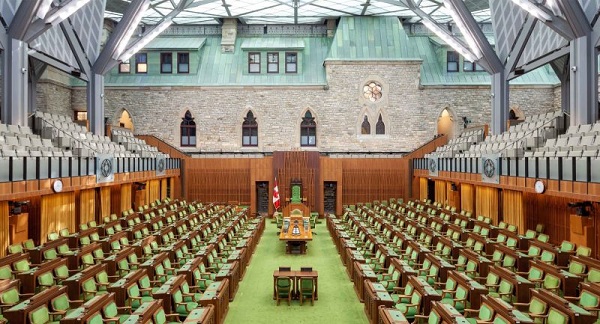
From the Frontier Centre for Public Policy
By David Leis
Canada’s economy is stagnating. The Carney government must act fast or risk yet another lost decade
Now that the election is behind us and Mark Carney has been handed the reins of government, it’s time to focus on what matters most: fixing the policy failures that have held Canada back for the past decade.
I recently had the privilege of speaking with three thoughtful policy experts—economist and Financial Post editor William Watson, Frontier Centre’s Vice President of Research and Policy Dr. Marco Navarro-Génie, and Catherine Swift, president of the Coalition of Concerned Manufacturers and Businesses of Canada. Our wide-ranging discussion focused on the economic and institutional challenges that threaten Canada’s long-term prosperity. The insights they shared—grounded in experience, data and a deep concern for the country—made one thing clear: the new government faces an urgent to-do list.
Canadians didn’t vote for more political theatre—they voted for results. But the economic problems haven’t gone away. Weak growth, declining productivity and investor flight are all signs of a country adrift. The new government must course-correct, starting with the economy.
Canada’s growth problem is real
Canada’s economic performance over the past 10 years has been dismal. It’s no wonder many are calling it “the Lost Decade.” GDP per capita—a key measure of how much economic output is created per person—has barely budged while our international peers have surged ahead. This isn’t just an abstract economic metric. It means Canadians are falling behind in real terms—earning less, struggling more and seeing fewer opportunities for themselves and their children.
A key cause is poor policy: excessive regulation, unpredictable tax frameworks and government-heavy industrial strategies that have failed to produce meaningful results. Capital is fleeing the country, productivity is slumping and even Canadian firms are investing elsewhere. The solution is not more central planning. It’s restoring the conditions for Canadians to thrive through work, innovation and enterprise.
Energy ambition must meet energy reality
Canada has what the world wants: abundant natural resources, a highly educated workforce and some of the highest environmental standards on the planet. But unclear energy policy—and an aversion to critical infrastructure like pipelines—has stalled progress.
If the Carney government is serious about turning Canada into an “energy and clean energy superpower,” it must acknowledge the role of oil and gas alongside renewables and nuclear power. Anything less is wishful thinking. We need investment certainty, streamlined permitting and a commitment to responsible development. Environmental posturing should not come at the cost of economic reality.
We must fix internal trade before preaching to the world
Canadians may be surprised to learn it’s often harder to do business between provinces than with other countries. While we champion free trade on the global stage, Canadians remain blocked from trading freely with each other. Interprovincial trade barriers inflate costs, suppress innovation and discourage business expansion. A licensed hairdresser in Ontario can’t easily work in Nova Scotia. Quebec beer can’t be freely sold in New Brunswick. These aren’t quirks of Confederation—they’re self-inflicted economic damage.
Three provinces—Ontario, Nova Scotia and New Brunswick—have recently pledged to dismantle some of these barriers. That’s encouraging. But national leadership is needed. A country that can’t trade within itself has no business lecturing others about open markets.
Don’t alienate our most important ally
The Canada–U.S. relationship is our most vital economic partnership. We can’t diversify away from a neighbour that buys three-quarters of our exports. That requires strategy, not showmanship—and a government that understands diplomacy, defence and economic interdependence go hand in hand.
Offhand statements suggesting the relationship is “over,” as Carney put it, aren’t just melodramatic. They’re reckless. Canada must show it’s a capable partner, not a reactive one.
Rebuild confidence at home
The election wasn’t a reset—it was a warning. Canadians are anxious, investors are wary and the country is fractured. Rebuilding confidence starts with governing transparently, delivering results and confronting the policy failures too long ignored.
The campaign may be over, but Canada’s challenges are not. Now the real work must begin.
David Leis is President and CEO of the Frontier Centre for Public Policy and host of the Leaders on the Frontier podcast.
Frontier Centre for Public Policy
Trust but verify: Why COVID-19 And Kamloops Claims Demand Scientific Scrutiny
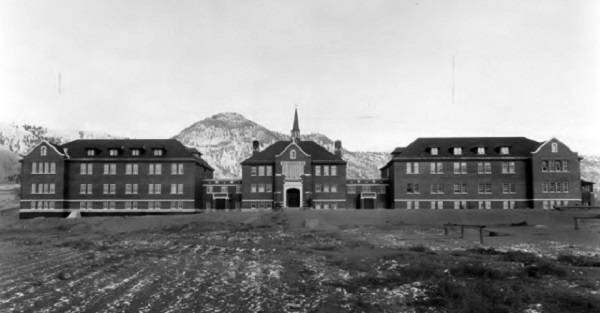
From the Frontier Centre for Public Policy
Senior Fellow Rodney Clifton calls for renewed scientific scrutiny of two major Canadian narratives: COVID-19 policies and the Kamloops residential school claims. He argues that both bypassed rigorous, evidence-based evaluation, favouring politicized consensus. Critics of pandemic measures, like Dr. Jay Bhattacharya, were wrongly dismissed despite valid concerns. Similarly, the unverified mass grave claims in Kamloops were accepted without forensic proof. Clifton urges a return to the scientific principle of “trust but verify” to safeguard truth, public policy, and democracy.
COVID-19 and Kamloops claims dodged scrutiny – but the truth is catching up
Do we know the best way to decide if specific empirical claims are true?
Of course we do. The best way is by using the procedures of science.
Scientists critically examine the arguments and evidence in research studies to find weaknesses and fallacies. If there are no weaknesses or fallacies, the evidence enters the realm of science. But if there are weaknesses, the research has low or zero credibility, and the evidence does not become a building block of science.
In a historical context, seemingly good evidence may not remain as science because claims are continually evaluated by researchers. This scientific process is not failsafe, but it is far better than other procedures for determining the truth of empirical claims.
This powerful principle is often called “trust but verify,” and it is the idea behind the replication of scientific results.
Today, many such truth claims demand critical examination. At least two come readily to mind.
The first is the claim that the COVID-19 procedures and vaccines were safe and effective.
It is now abundantly clear that the procedures used during the COVID-19 pandemic bypassed time tested scientific protocols. Instead of open scientific debate and rigorous testing, government appointed “scientists” endorsed government-approved narratives. Canadians were told to social distance, wear masks and, most importantly, get vaccinated—often without transparent discussion of the evidence or risks.
Those who questioned the procedures, vaccines or official explanations were dismissed as “deniers” and, in some cases, ridiculed. Perhaps the most notable example is Dr. Jay Bhattacharya, the Stanford epidemiologist and economist who co-authored the Great Barrington Declaration. Despite being vilified during the pandemic, Dr. Bhattacharya is now the head of the U.S. National Institute of Health.
Five years after the pandemic began, it is clear that Dr. Bhattacharya—and many other so-called deniers—were raising legitimate concerns. Contrary to the portrayal of these scientists as conspiracy theorists or extremists, they were doing exactly what good scientists should do: trusting but verifying empirical claims. Their skepticism was warranted, particularly regarding both the severity of the virus and the safety and effectiveness of the vaccines.
The second claim concerns the allegation that Indigenous children died or were murdered and buried in unmarked graves at the Kamloops Residential School.
In 2021, the Kamloops Indigenous Band claimed that 215 children’s bodies had been discovered in the schoolyard. The legacy media swiftly labelled anyone who questioned the claim as a “denier.” Despite millions of dollars allocated for excavations, no bodies have been exhumed. Meanwhile, other bands have made similar claims, likely encouraged by federal government incentives tied to funding.
To date, this claim has not faced normal scientific scrutiny. The debate remains lopsided, with one side citing the memories of unnamed elders—referred to as “knowledge-keepers”—while the other side calls for forensic evidence before accepting the claim.
The allegation of mass graves was not only embraced by the media but also by Parliament. Members of the House of Commons passed a motion by NDP MP Leah Gazan declaring that Indigenous children were subjected to genocide in residential schools. Disturbingly, this motion passed without any demand for forensic or corroborating evidence.
Truth claims must always be open to scrutiny. Those who challenge prevailing narratives should not be disparaged but rather respected, even if they are later proven wrong, because they are upholding the essential principle of science. It is time to reaffirm the vital importance of verifying evidence to resolve empirical questions.
We still need a robust debate about COVID-19 procedures, the virus itself, the vaccines and the claims of mass graves at residential schools. More broadly, we need open, evidence-based debates on many pressing empirical claims. Preserving our democracy and creating sound public policy depend on it because verifiable evidence is the cornerstone of decision-making that serves all Canadians.
Rodney A. Clifton is a professor emeritus at the University of Manitoba and a senior fellow at the Frontier Centre for Public Policy. Along with Mark DeWolf, he is the editor of From Truth Comes Reconciliation: An Assessment of the Truth and Reconciliation Commission Report, which can be ordered from Amazon.ca or the Frontier Centre for Public Policy.
-
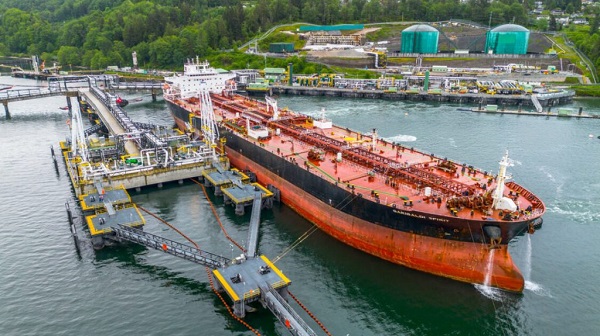
 Energy2 days ago
Energy2 days agoOil tankers in Vancouver are loading plenty, but they can load even more
-
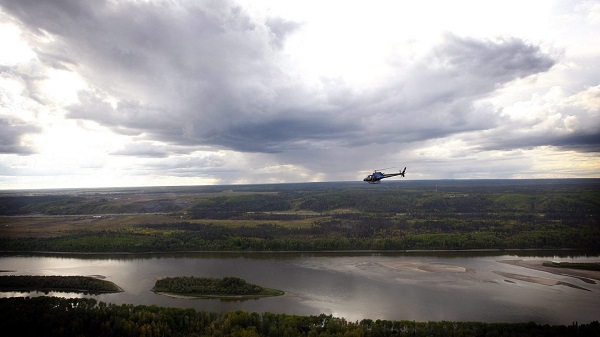
 Alberta2 days ago
Alberta2 days agoEnergy projects occupy less than three per cent of Alberta’s oil sands region, report says
-

 Alberta2 days ago
Alberta2 days agoCharges laid in record cocaine seizure
-

 Energy2 days ago
Energy2 days agoCarney’s energy superpower rhetoric falls flat without policy certainty
-
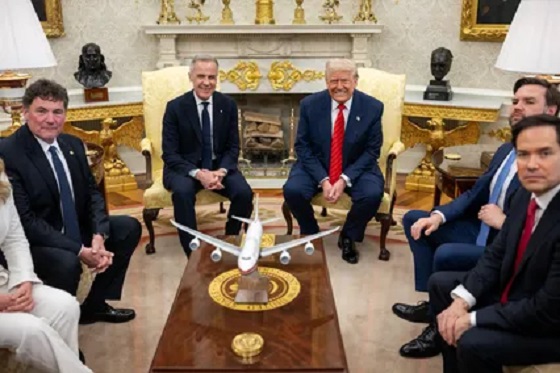
 conflict1 day ago
conflict1 day agoWATCH: U.S. ending bombing campaign on Yemeni militant group
-
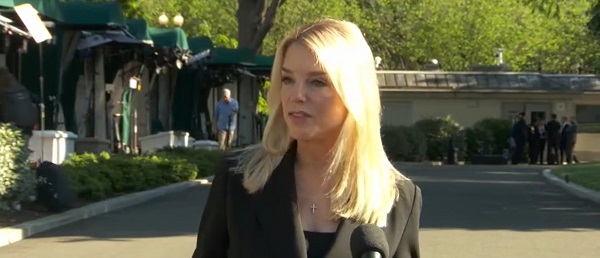
 Crime2 days ago
Crime2 days agoPam Bondi Reveals What The Holdup Is With Epstein File Release
-

 Business1 day ago
Business1 day agoInnovative Solutions Like This Plan To Provide Power For Data Centres Will Drive Natural Gas Demand For Decades
-
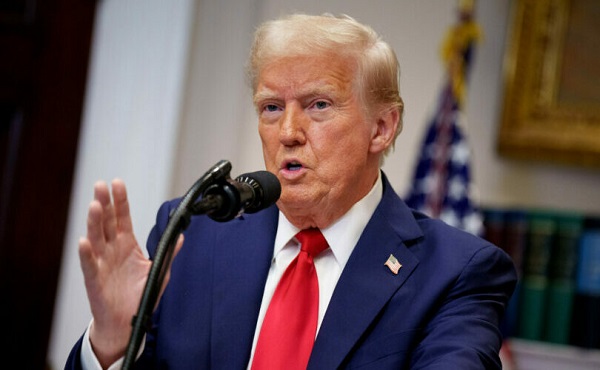
 Business11 hours ago
Business11 hours agoTrump announces UK will fast-track American products under new deal
